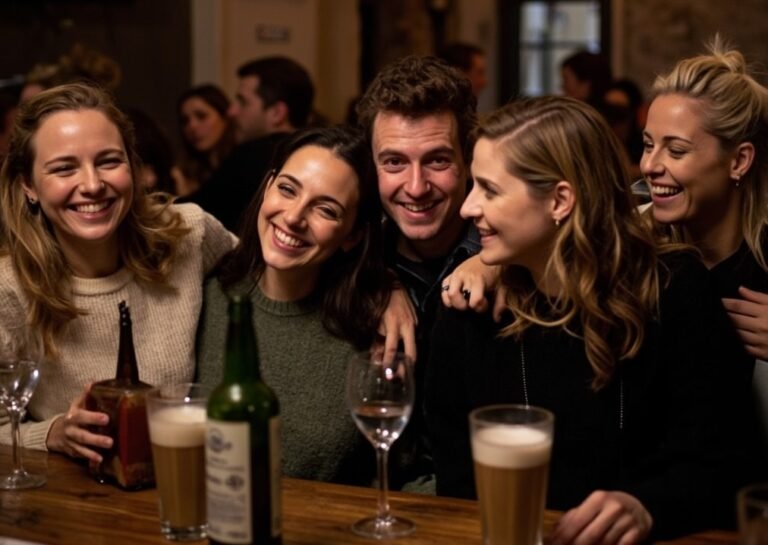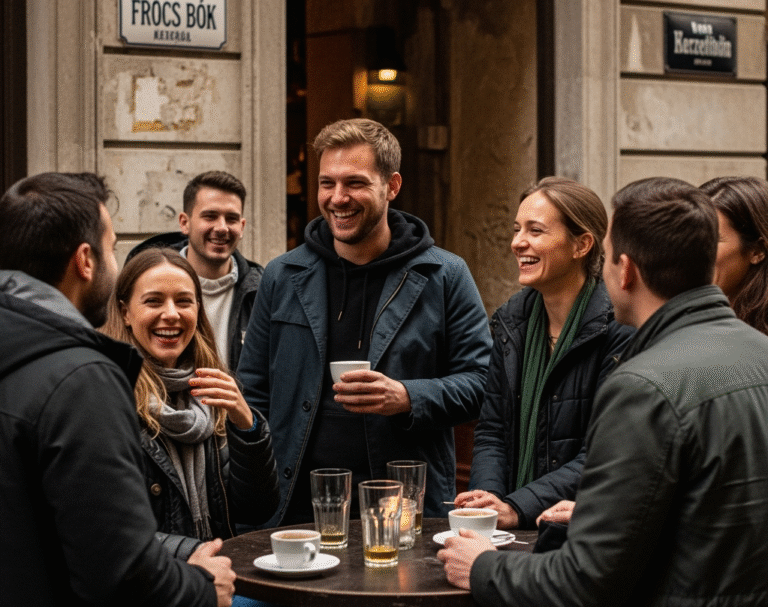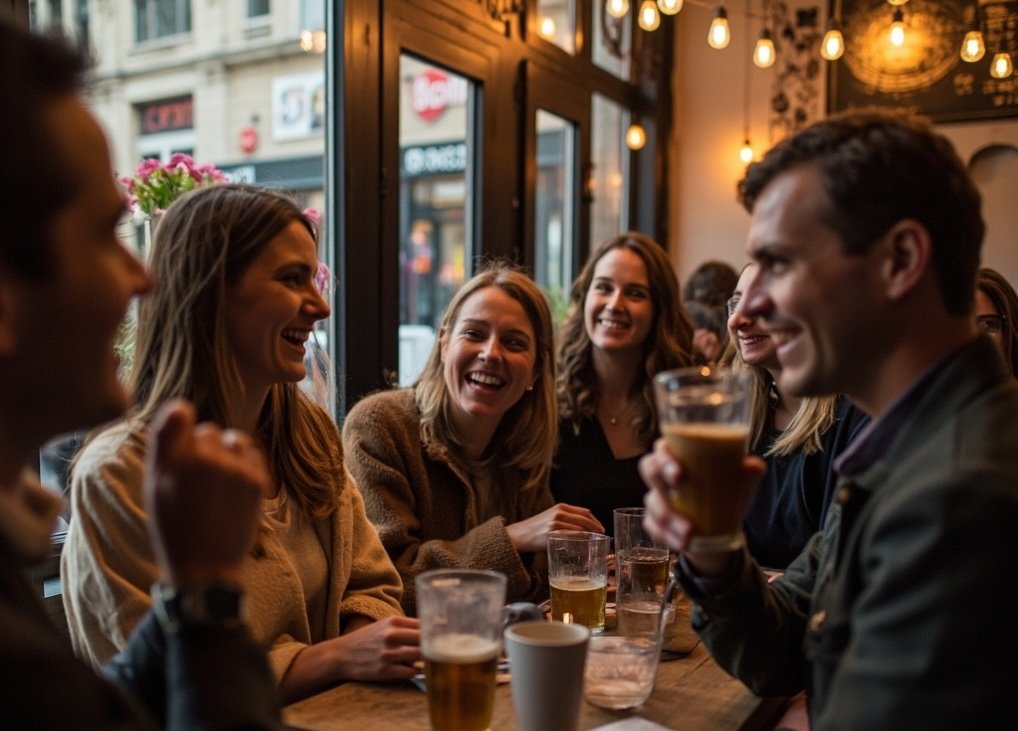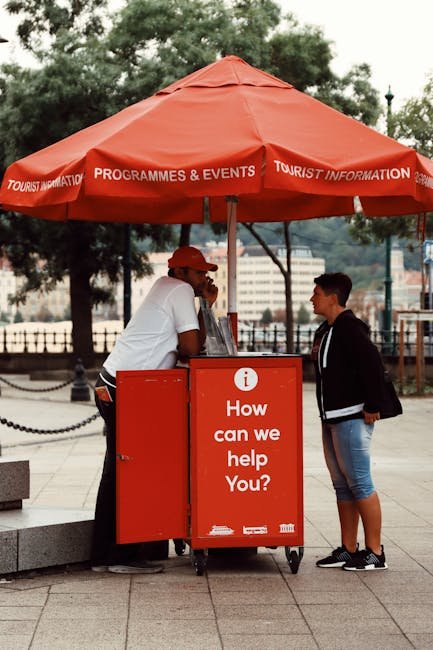The Hidden Loneliness of Budapest Expats
It’s Friday night. You’ve settled into your Pest apartment, survived your first week of work or study in Hungary’s capital, and planned on heading out for drinks. But then it hits you—you don’t actually have anyone to text yet.
This is the paradox of being an expat in Budapest: surrounded by people in a vibrant, bustling city, you can still feel more alone than ever. Most people’s first instinct is to cling to the expat bubble: other internationals who speak perfect English and share your struggles. It’s warm, comfortable, and easy. But it can keep you isolated from the Hungary you moved here to experience.
The good news? Breaking out of that bubble doesn’t mean breaking yourself. By taking clear, actionable steps, you can make friends in Budapest who come from both the expat and local communities. This guide—packed with insider tips, venues, success stories, and cultural insights—will help you find your people and build a fulfilling Budapest social life.
And if you want even more insider tips, don’t forget to check BudaBestLife.com, where expats just like you share updated listings, resources, and advice for navigating life in Budapest.
Why the Expat Bubble is Limiting
- What is the expat bubble?
A comfort zone made up of English-speaking expats who socialize mainly with each other. Safe, but limiting. - Why it forms:
You move to Budapest, feel overwhelmed, and naturally gravitate to others facing the same challenges. You speak the same language; they “get” you immediately. - Why it’s limiting:
- Friendships can feel shallow or transactional (people move away often).
- You miss Hungarian traditions, humor, and deeper culture.
- You risk never learning the local language.
- Social life costs more when centered on tourist-heavy hangouts.
- Data point: A 2024 InterNations survey found that 59% of expats in Budapest reported difficulties forming local friendships, a number higher than the global expat average.
Staying inside the bubble prevents you from forming authentic friendships that can make Budapest feel like home. Let’s look at how to actually bridge that gap.

Understanding Hungarian Social Culture
- Reserved at first, deep once trusted: Hungarians won’t necessarily greet you with hugs or effusive small talk. They may seem quiet in public or formal in introductions. But when they warm to you, expect invitations into their homes, long late-night conversations, and true loyalty.
- “Cold” myth: This is a frequent expat complaint. In reality, Hungarian society just places more emphasis on earned familiarity. Think of it as slow-cooked, not fast food.
- Etiquette:
- Always greet with “Szia” (singular) or “Sziasztok” (plural).
- Don’t address elders by their first name unless invited.
- Arriving late to social gatherings is considered rude.
- Social life is seasonal:
- Summer: Budapest parks, outdoor beer gardens, Margitsziget running paths.
- Winter: Thermal bath gatherings, ruin pubs, Christmas fairs.
- Pro Tip: Learn phrases like “Egészségedre!” (cheers) and “Nagyon örülök!” (“I’m very glad tomeetyou”). Dropping these in social settings can charm Hungarian friends instantly.
Cultural awareness = quicker trust + deeper bonds. Once this mindset shift happens, everything else opens up.
Strategic Friendship Building Methods
A. Language-Based Connections
- Language exchanges:
- Budapest Language Exchange Meetup at Szimpla (District VII).
- International Meeting Point Budapest at Lärm.
- Apps:
- Tandem, HelloTalk (connect with locals learning English).
- Courses:
- Hungarian Language School (District V). Classes often include Friday “student nights.”
- Balassi Institute (government-run, structured + cultural activities).
- Conversation cafés: NyelvPont runs informal practice groups with Hungarian students of English.
Fail fast, practice often. Locals respect anyone making the effort—even badly.
B. Shared Interest Communities
- Sports:
- Running: Margaret Island Running Club.
- Soccer: expat-heavy Budapest Football Club.
- Fitness: free outdoor bootcamps in City Park.
- Trivia & Quizzes:
- Budapest Pub Quiz (weekly, rotating bars in District VII).
- Arts & Creativity:
- Auróra (District VIII): alternative art/activism hub.
- Müszi (multi-disciplinary art space).
- English-language theatre at Scallabouche.
- Professional Networking:
- Budapest Business Breakfast.
- Networking Hungary (monthly socials).
- Startup Grind Budapest talks.
Buddy up by passion→ instant relevance.
C. Neighborhood Integration
- Choose your “third place”: Pick one café/bar and go weekly.
- Pest: Massolit Books & Café (District VII).
- Buda: Bambi Eszpresszó (classic, District II).
- Festivals:
- Budapest Wine Festival (September, Buda Castle).
- Farsang Carnival (February).
- Local district fairs (especially in Óbuda).
- Pro Tip: Smile at your butcher, greet your landlord warmly, buy from local produce markets. Relationships build slowly but last.
D. Volunteering & Social Impact
- Food Not Bombs Budapest: cook meals, hand out in Blaha area.
- HBA Aid (Hungarian Baptist Aid): relief projects.
- Trash Hero Budapest: weekend park cleanups.
- Auróra activism spaces: sustainable/cultural causes.
Bouquet of opportunities = meeting conscious, engaged people.
E. Professional & Academic Networks
- Coworking:
- KAPTÁR (District VI) runs Friday “Community Coffees.”
- Impact Hub Budapest: social entrepreneurship crowd.
- Conferences: Brain Bar Budapest — high-profile intellectual fest.
- Academic: Erasmus, ELTE, Corvinus study groups; expats welcome.
- Startups: Startup Hungary and Kitchen Budapest incubator nights.
Great if you’re career-driven or prefer structured networks.

Overcoming Common Challenges When Making Friends in Budapest
Making friends in Budapest as a foreigner comes with unique obstacles that can derail even the most motivated expats. Here’s how to navigate the most common challenges with proven strategies that actually work.
Breaking Through the Language Barrier
The Hungarian language intimidates many newcomers—and rightfully so. With its 18 cases and Finno-Ugric roots, Hungarian ranks among the most challenging languages for English speakers. However, you don’t need fluency to build meaningful friendships.
Master the “Entry-Level Hungarian Social Script”
Focus on conversational openers that show respect and effort:
- “Jó napot” (YO nah-pot) – Good day (formal greeting)
- “Szia” (SEE-ah) – Hi/Bye (informal)
- “Beszél angolul?” (BEH-sael AHN-go-lool) – Do you speak English?
- “Bocsi, nem beszélek jól magyarul” (BOH-chee nem BEH-sae-lek yole MAH-dyah-rool) – Sorry, I don’t speak Hungarian well
- “Tanulom a magyart” (TAH-noo-lom ah MAH-dyahrt) – I’m learning Hungarian
The Golden Rule: Always Start Local, Then Switch
Begin every interaction in Hungarian, even if it’s just “Jó napot.” This small gesture signals respect for Hungarian culture. Most Budapestians speak excellent English and will gladly switch languages once they see you’ve made an effort. Moreover, this approach immediately sets you apart from tourists and shows genuine interest in integration.
Download Language Apps with Hungarian Focus
Drops: Visual vocabulary building for Hungarian
Mondly Hungarian: Specifically designed for Hungarian learners
HelloTalk: Connect with Hungarian natives wanting to practice English
Decoding Hungarian Social Behavior
Many expats misinterpret Hungarian directness and reserved nature as coldness or rudeness. Understanding these cultural nuances prevents unnecessary social anxiety and helps you respond appropriately.
The “No Small Talk” Reality
Hungarians typically skip weather discussions and dive straight into meaningful conversations. This directness isn’t antisocial—it’s efficient and authentic. When a Hungarian asks “How are you?” they expect a real answer, not “Fine, thanks.” Embrace this depth; it actually accelerates friendship formation once you adjust.
Reading Hungarian Body Language
- Limited smiling to strangers is normal and doesn’t indicate unfriendliness
- Direct eye contact shows sincerity and respect
- Personal space is valued—maintain arm’s length until invited closer
- Handshakes are firm and brief; hugging is reserved for close friends
The Invitation Protocol
Hungarians rarely extend invitations casually. When someone invites you to their home for dinner or to meet their family, they’re making a significant gesture of friendship. Always accept these invitations when possible—they represent major relationship milestones.
Conquering Social Anxiety in Budapest
Social anxiety affects expats universally, but Budapest’s reserved culture can amplify these feelings. Combat this with structured, low-pressure approaches.
Implement the Micro-Goals Strategy
Break large social objectives into manageable tasks:
- Event Goal 1: Arrive within the first 30 minutes (when people are most open to meeting newcomers)
- Event Goal 2: Introduce yourself to exactly 2 people by name
- Event Goal 3: Ask 1 person about their favorite Budapest neighborhood or restaurant
- Event Goal 4: Exchange contact information with 1 person before leaving
Use the “Cultural Curiosity” Opener
Hungarians love sharing knowledge about their culture. Ask genuine questions about:
- Hungarian holiday traditions
- Favorite local restaurants outside tourist areas
- Hidden gems in their neighborhood
- Recommendations for Hungarian films or books
This approach positions you as a learner rather than a networking opportunist, creating more authentic connections.
Practice the “Two-Event Rule”
Attend the same recurring event twice before judging its friendship potential. First visits often feel awkward due to unfamiliarity with group dynamics. By the second visit, you’ll recognize faces and feel more integrated into existing conversations.
Building Consistency for Long-Term Success
One-off events rarely produce lasting friendships. Consistency creates familiarity, trust, and natural relationship progression.
Choose Ongoing Commitments Over Single Events
Replace sporadic meetup attendance with regular commitments:
- Weekly language exchanges at the same venue
- Monthly hiking groups through Budapest hiking clubs
- Seasonal sports leagues (football, volleyball, running clubs)
- Multi-week courses (cooking, photography, dance classes)
The “Third Time’s the Charm” Principle
Meaningful friendships typically develop after the third meaningful interaction. Plan for this timeline by choosing activities that naturally repeat and create shared experiences over several weeks.
Track Your Social Calendar
Maintain a simple spreadsheet or phone note tracking:
- Events attended and dates
- Names of people met and conversation topics
- Follow-up actions needed
- Success metrics (coffee dates scheduled, friend invitations received)
Your 8-Week Budapest Friendship Action Plan
This systematic approach transforms vague intentions into concrete friend-making progress. Follow this weekly structure while adapting activities to your interests and schedule.
Week 1: Foundation Building
Primary Goal: Establish your first local connections and practice basic Hungarian social interactions.
Monday-Tuesday: Download Hungarian learning apps and practice basic greetings for 15 minutes daily.
Wednesday: Attend your first language exchange event. Choose popular venues like:
- Szimpla Kert language exchange (Thursdays)
- Morrison’s 2 international meetup (Wednesdays)
- Central European University community events
Thursday-Friday: Practice greetings with service workers—your building’s security guard, local shopkeeper, or coffee barista. Start with “Jó napot” and gauge their English comfort level.
Weekend: Explore one new neighborhood while practicing Hungarian phrases with locals you encounter.
Week 1 Success Metric: Successfully greet 5 locals in Hungarian and have 1 extended conversation at the language exchange.
Week 2: Activity Integration
Primary Goal: Join structured social activities that align with your interests.
Monday: Research and sign up for one ongoing activity:
- Quiz nights at expat-friendly bars ( Doboz, or Morrison’s 2)
- Hobby groups through Facebook groups like “Budapest Expats” or “Internations Budapest”
- Fitness classes at popular gyms like World Class or local CrossFit boxes
Tuesday-Wednesday: Attend your chosen activity and implement the micro-goals strategy from Week 1.
Thursday: Return to the same language exchange from Week 1. Greet familiar faces and introduce yourself to 2 new people.
Weekend: Join a walking tour or food tour, but focus on connecting with fellow participants rather than just sightseeing.
Week 2 Success Metric: Exchange contact information with 2 people and make plans for future meetups.
Week 3: Community Contribution
Primary Goal: Build deeper connections through shared purpose and giving back.
Monday: Research volunteer opportunities that match your skills:
- Hungarian Food Not Bombs (helps homeless population)
- Budapest Animal Shelter volunteer programs
- English conversation practice with Hungarian students
- International charity organizations operating in Budapest
Tuesday-Wednesday: Complete your first volunteer session. Volunteering attracts like-minded individuals and creates immediate conversation topics.
Thursday: Attend your regular language exchange and share your volunteer experience with new acquaintances.
Weekend: Organize a small group activity with contacts from previous weeks—suggest exploring a market, visiting a thermal bath, or trying a new restaurant.
Week 3 Success Metric: Complete one volunteer session and successfully organize your first group outing with new Budapest connections.
Week 4: Relationship Deepening
Primary Goal: Transform casual acquaintances into potential friendships through one-on-one interactions.
Monday-Tuesday: Review your contacts from previous weeks and identify 3-4 people you’d like to know better.
Wednesday: Send personalized follow-up messages to your selected contacts. Reference specific conversations you had and suggest meeting for coffee, visiting a museum, or exploring a new part of the city.
Thursday-Friday: Schedule and complete at least one coffee meeting or casual hangout.
Weekend: Invite 2-3 potential friends to explore a uniquely Budapest experience together—visit ruin pubs in the Jewish Quarter, attend a thermal bath, or explore the Central Market Hall.
Week 4 Success Metric: Complete 2 one-on-one meetings and organize 1 group activity with your growing friend network.
Weeks 5-8: Expansion and Deepening
Continue the monthly cycle while expanding your network and deepening existing connections:
- Week 5: Try a completely new activity type (sports, arts, professional networking)
- Week 6: Host your first gathering—apartment dinner party, picnic in Városliget Park, or ruin pub crawl
- Week 7: Join a second ongoing activity to meet different personality types
- Week 8: Evaluate progress and plan your next month’s social goals
Monthly Maintenance Strategy
After completing your initial 8-week program:
- Maintain 2-3 regular weekly activities
- Schedule 1-2 one-on-one meetings per week
- Organize 1 group activity monthly
- Try 1 completely new activity monthly to expand your network
Target Outcome: Develop 3-5 genuine friend candidates who regularly invite you to activities, remember personal details about your life, and feel comfortable sharing their own experiences with you.
Red Flags to Avoid:
- Attending only English-speaking expat events
- Focusing solely on professional networking rather than personal connections
- Giving up after 2-3 weeks without seeing immediate results
- Rejecting invitations due to social anxiety or comfort zone preferences

Success Stories: How Expats Actually Made Friends in Budapest
These amazing stories demonstrate that while approaches vary, persistence and genuine cultural curiosity consistently lead to meaningful friendships. Each person overcame different challenges but succeeded by staying consistent and open to Hungarian culture.
Story 1: Sarah the Digital Nomad – From Isolation to Integration
Background: Sarah, a 28-year-old freelance graphic designer from Canada, arrived in Budapest feeling overwhelmed by the city’s size and language barrier. After two months of working from cafes and attending only English-speaking events, she realized she was stuck in the expat bubble.
The Breakthrough: Sarah joined Futó Közösség Budapest, a local running club that met every Tuesday evening at Margaret Island. Despite limited Hungarian skills, she committed to attending every week.
Initial Struggles: The first month was challenging. Most conversations happened in Hungarian, and Sarah felt excluded during post-run coffee sessions. She almost quit after week three when language barriers made her feel invisible.
The Turning Point: During week five, another runner named Petra noticed Sarah’s consistency and approached her in English. Petra, a Hungarian marketing professional, appreciated Sarah’s dedication and invited her to Sunday brunch with her friend group.
Friendship Evolution: These brunches became weekly events. Sarah met Péter, a Hungarian web developer who became her first genuine local friend. Through Péter’s network, she eventually found Anna, who became her flatmate and closest Budapest friend.
Current Situation: Eighteen months later, Sarah’s social calendar includes weekly runs, monthly hiking trips with her Hungarian friends, and holiday celebrations with Petra’s extended family. She’s picked up conversational Hungarian and considers Budapest her permanent home base.
Key Success Factors:
- Chose an activity requiring minimal language skills initially
- Maintained perfect attendance despite early discomfort
- Accepted invitations outside her comfort zone
- Built on one friendship to expand her network naturally
Story 2: Marc the English Teacher – Finding Purpose Through Service
Background: Marc, a 32-year-old English teacher from South Africa, moved to Budapest for a position in teaching but struggled with the transition from his previously tight-knit community back home. Despite working with Hungarian colleagues, his relationships remained superficial and professional.
The Challenge: Marc’s teaching schedule isolated him from traditional expat networking events, which mostly occurred during his working hours. Evening language exchanges felt forced and didn’t align with his values-driven personality.
The Solution: Marc discovered Hungarian Food Not Bombs, a volunteer organization providing free meals to Budapest’s homeless population every Saturday. The cause resonated with his background in community development.
Initial Experience: Volunteering attracted people from diverse backgrounds—Hungarian activists, international students, long-term expats, and local social workers. The shared mission created immediate common ground despite language differences.
Friendship Development: After six weeks of consistent volunteering, Marc connected with Zoltán and Katalin, a Hungarian couple in their thirties who coordinated meal preparations. They appreciated Marc’s reliability and invited him to join their friend group for weekend activities.
Expanding Connections: Through Zoltán and Katalin, Marc met their friend circle—teachers, social workers, and artists who shared his progressive values. These relationships extended beyond weekend volunteering into hiking trips, cultural events, and holiday celebrations.
Long-term Impact: Two years later, Marc considers his volunteer friends his chosen family in Budapest. He’s learned intermediate Hungarian through natural conversations and has traveled throughout Hungary with his new friends. Several relationships have become close enough that he regularly visits friends’ family gatherings in rural Hungarian towns.
Key Success Factors:
- Aligned social activities with personal values
- Committed to consistent weekly participation
- Built friendships through shared purpose rather than casual socializing
- Remained open to activities outside Budapest city limits
Elena the Startup Founder – Professional Networks Becoming Personal Bonds
Background: Elena, a 35-year-old tech entrepreneur from Spain, relocated to Budapest to launch her fintech startup. Despite extensive professional networking through Design Terminal and other startup incubators, she struggled to develop personal relationships beyond business contexts.
The Approach: Elena joined Kaptár coworking space in the heart of Budapest’s startup scene. Unlike traditional networking events, the coworking environment allowed for natural, repeated interactions over months.
Relationship Building: Elena’s breakthrough came through consistent presence rather than forced networking. She participated in Kaptár’s weekly community lunches and volunteered for their monthly entrepreneur meetups.
Meaningful Connections: Elena connected with David, a Hungarian startup founder building an educational app, and Marie, a French marketing consultant who’d been in Budapest for three years. Their shared entrepreneurial challenges created natural conversation topics.
Evolution Beyond Business: After three months of professional interactions, David invited Elena to his birthday celebration, where she met his Hungarian girlfriend and friend group. This introduction shifted their relationship from professional to personal.
Mentorship and Friendship: Elena also developed a mentoring relationship with István, a successful Hungarian entrepreneur who sold his company five years earlier. Their monthly coffee meetings evolved into family dinners and weekend activities with István’s family.
Current Network: Elena now maintains a diverse friend group combining Hungarian entrepreneurs, international startup founders, and local professionals. Her wedding last year included guests from her coworking space, startup community, and Hungarian friends’ families.
Key Success Factors:
- Chose professional environments that encouraged personal connections
- Invested time in community building rather than transactional networking
- Accepted social invitations that moved relationships beyond professional contexts
- Developed both peer friendships and mentoring relationships
Universal Lessons from Success Stories
Consistency Trumps Charisma: All three individuals succeeded through regular participation rather than exceptional social skills. Their Hungarian friends appreciated reliability and genuine effort over perfect language abilities or cultural knowledge.
Authentic Interest in Hungarian Culture: Each person demonstrated curiosity about Hungarian perspectives, traditions, and experiences rather than expecting locals to adapt to expat preferences.
Multiple Relationship Types: Successful expats developed diverse friend groups including Hungarian locals, long-term expats, and international newcomers. This variety provided different perspectives and social opportunities.
Patience with Relationship Development: None of these friendships developed overnight. Each person invested 3-6 months in consistent interaction before developing close personal bonds.
Openness to Hungarian Social Customs: All three individuals adapted to Hungarian invitation styles, directness in communication, and different social rhythms rather than insisting on their home country’s social norms.
The common thread connecting these success stories isn’t personality type, language ability, or professional status—it’s the willingness to show up consistently and engage authentically with Hungarian culture while remaining open to unexpected friendship opportunities.
FAQs
Q: Best ways to meet locals?
A: Language exchanges, volunteering, and being a “regular” in your neighborhood.
Q: How to overcome the language barrier?
A: Start with greetings, use apps, support with English-friendly events.
Q: Where is Budapest’s social life strongest?
A: Districts V–VII (Pest) for nightlife; Buda for calmer community events.
Stop Living in Budapest. Start Belonging to It.
Yes, moving abroad is a monumental challenge. But it’s also a rare opportunity to build a life that is deeply, authentically yours. Furthermore, the strategies you’ve learned here are your keys to unlocking that reality. This isn’t just about making friends; it’s about transforming Budapest from a pin on a map into a place that truly feels like home—a home filled with laughter, shared stories, and the warmth of genuine connection.
The formula is simple but powerful: be curious, be consistent, and have the courage to say “szia.” Consistency builds familiarity, and familiarity builds trust. That’s how a social calendar transforms into a real community.
Your vibrant, connected life in Hungary is not just a possibility—it’s within your reach.
Ready to take the next step? For constantly updated guides, exclusive community spotlights, and the local tips you won’t find anywhere else, make BudaBestLife.com your trusted guide. Let’s build your best life together.
Share with your Friends:



